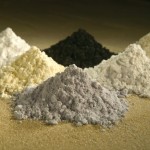The recent tensions between India and Canada could have a significant impact on the trade of goods between the two countries. The Indian government has already suspended visas for Canadians, and it is possible that further trade restrictions could be imposed in the future.
This could have a negative impact on the Indian economy, as imports from Canada are essential for many Indian businesses and consumers. For example, India's fertilizer industry relies heavily on imports from Canada, and any disruption to these imports could lead to higher food prices for Indian consumers.

Trade
Canada-India bilateral trade in goods reached nearly $12bn Canadian dollars ($9bn US dollars) in 2022, a substantial 57 percent increase over the previous year, according to the Canadian government.
Major imports from Canada include fertilizers and energy products such as coal, coke and briquettes while India exports consumer goods, garments, engineering products such as auto parts, aircraft equipment, and electronic items.
Canada’s top exports to India in 2022 were fossil fuels and related products worth nearly $1bn US, followed by fertilizers worth nearly $748m, and wood pulp and plant fibers worth about $384m, according to Trading Economics/UN Comtrade data.
Here is a list of the top 10 products imported by India from Canada in 2022.
| Canadian exports to India | Value |
| Mineral fuels, oils, distillation products | $949.52M |
| Fertilizers | $748.13M |
| Pulp of wood, fibrous cellulosic material, waste | $384.08M |
| Edible vegetables and certain roots and tubers | $302.90M |
| Paper and paperboard, articles of pulp, paper and board | $272.93M |
| Aircraft, spacecraft | $244.71M |
| Iron and steel | $223.10M |
| Pearls, precious stones, metals, coins | $149.70M |
| Machinery, nuclear reactors, boilers | $146.05M |
| Ores slag and ash | $141.35M |
Source: Trading Economics.com
Investment
Moreover, Canada is India’s 17th largest foreign investor, pouring in more than $3.6bn since 2000, while Canadian portfolio investors have invested billions of dollars in Indian stock and debt markets.
Conclusion
The India-Canada trade problem is a complex one, with no easy solutions. However, it is important for the two countries to maintain a dialogue and work towards resolving their differences.
It is hoped that the two countries will be able to find a way to resolve their differences and continue to build on their mutually beneficial relationship. Both countries have a lot to gain from working together, and both countries have a lot to lose if they allow their differences to divide them.








